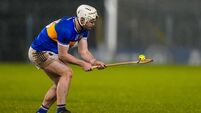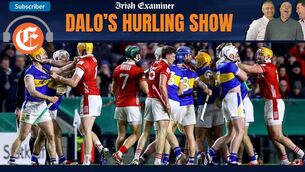The day the Kingdom crumbled
That old advice from The Man Who Shot Liberty Valance applies to a Munster senior football championship tie played fifty years ago tomorrow, when Waterford turned Kerry over in the Sportsfield in Waterford city.
The legends started at the final whistle and haven’t stopped growing since. Kerry were so short for the game they had to ask the bus driver to line out; they were on the drink the night before the game in Waterford; they togged out a journalist; the Waterford side was picked in the back room of a bar in Dungarvan; one Kerry player forgot to bring his boots and an official turned Waterford upside down trying to replace them; Tom Cunningham’s winning point came as the referee inhaled to blow the final whistle; the crowd doubled in size between the start and end of the game. Take your pick.










